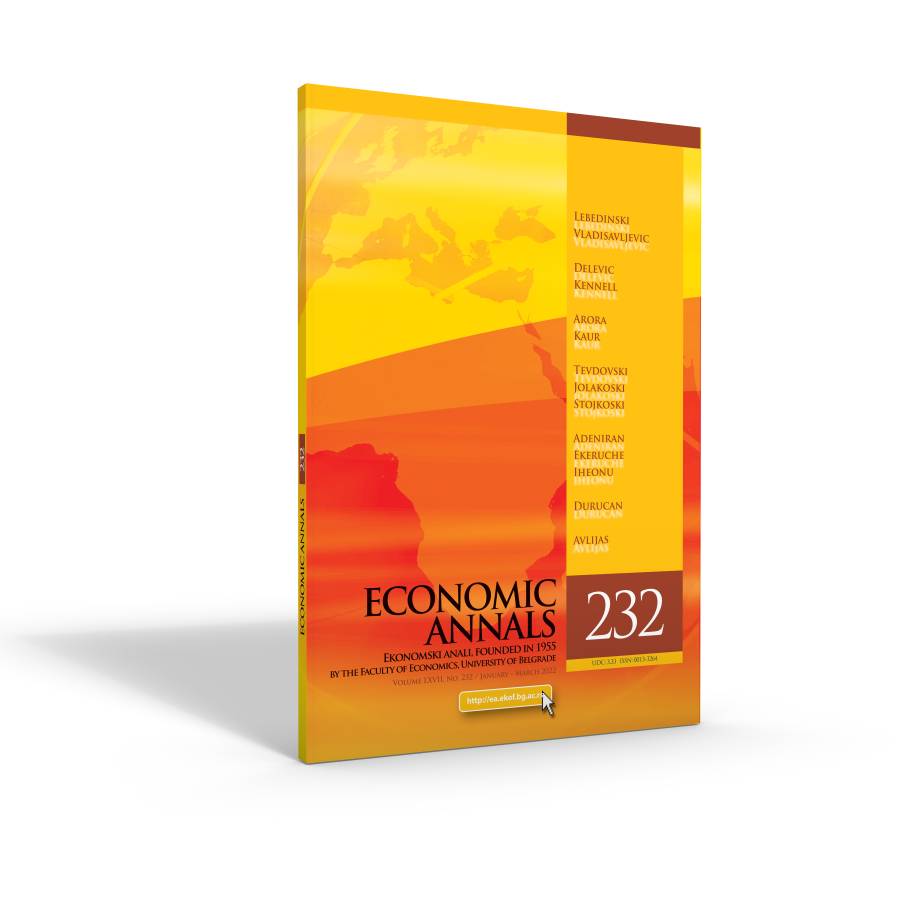MULTINATIONALS AND WAGES: EVIDENCE FROM EMPLOYER–EMPLOYEE DATA IN SERBIA
##plugins.themes.bootstrap3.article.main##
##plugins.themes.bootstrap3.article.sidebar##
Uros Delevic
James Kennell
James Kennell
Abstract
Many studies have reported that foreign-owned companies pay higher wages on average than domestic companies. However, this can be attributed to the different composition of the workforce or to a wage premium at the individual worker level. This paper contributes to this literature by observing whether individuals that change their job from a domestic to a foreign-owned company experience a change in their wages. Furthermore, it investigates whether this difference in wage patterns is moderated by workers’ education. This paper is one of the very few micro-econometric studies that deal with this question in a transition country, Serbia, using employer–employee data on the private sector over a long time period (15 years). Changing jobs is found to be positively associated with workers’ wages: the change in wages is higher when moving from a domestic to a foreign company than vice versa. The evidence suggests that more-educated workers benefit the most from leaving domestic companies.
##plugins.themes.bootstrap3.article.details##
Keywords
labour mobility, job change, wage change, MNEs and wages, transition economies
JEL Classification
B21, C12, C01, C33, F16, F66
Issue
Section
Articles
How to Cite
Delevic, U., & Kennell, J. (2022). MULTINATIONALS AND WAGES: EVIDENCE FROM EMPLOYER–EMPLOYEE DATA IN SERBIA. Economic Annals, 67(232), 49-80. https://doi.org/10.2298/EKA2232049D
How to Cite
Delevic, U., & Kennell, J. (2022). MULTINATIONALS AND WAGES: EVIDENCE FROM EMPLOYER–EMPLOYEE DATA IN SERBIA. Economic Annals, 67(232), 49-80. https://doi.org/10.2298/EKA2232049D

